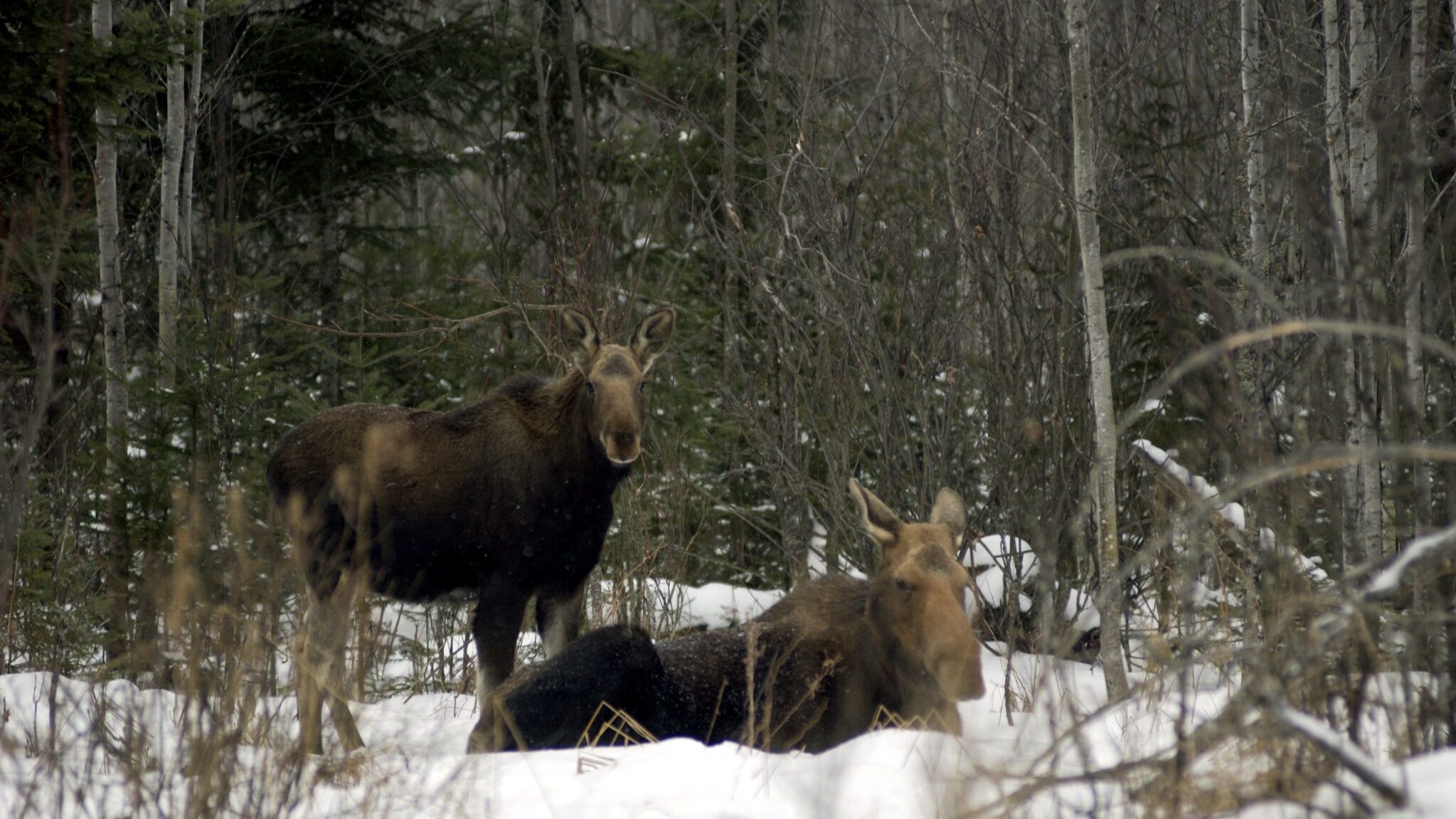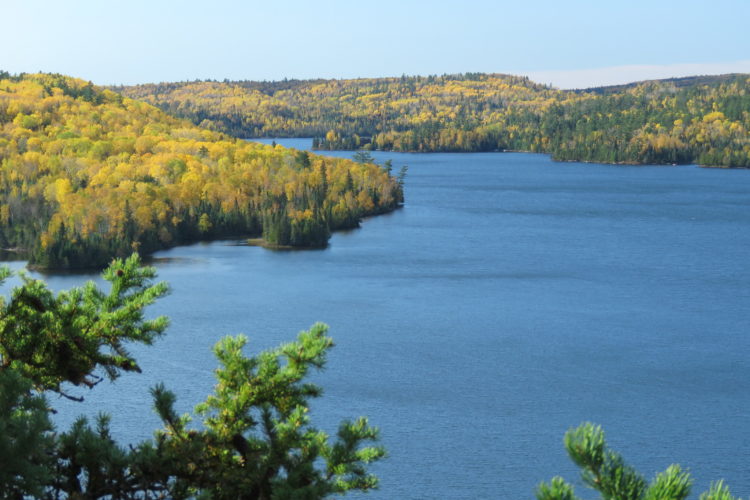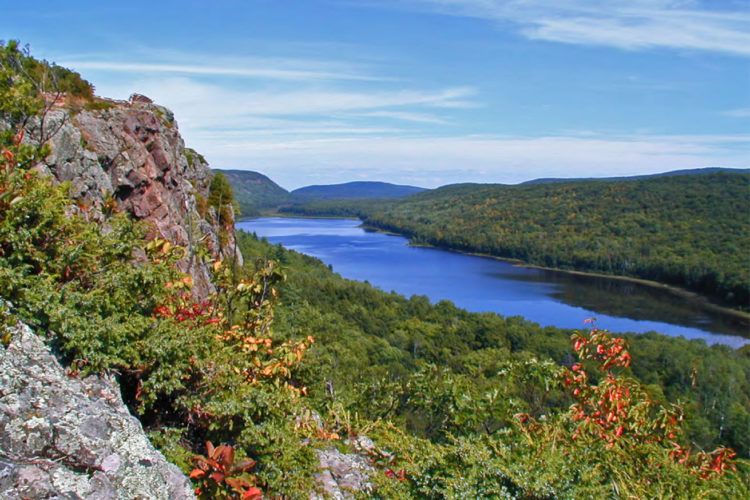We have much more to do and your continued support is needed now more than ever.
Protecting our Great Northwoods

Stretching across millions of acres north of the 45th parallel in Michigan, Minnesota, and Wisconsin, our Great Northwoods is one of the most revered places on the continent.
These ecologically-rich hardwood forests include thousands of sparkling freshwater lakes and miles of free-flowing streams, providing vital habitat for a variety of wildlife. Close to major population centers, the Northwoods also bring unparalleled opportunities for people to relax, recreate, and reconnect with nature.
The Great Northwoods is facing many challenges that threaten its preservation
Pressures in the Great Northwoods are ever-increasing, while funding for science-based management is dwindling. Ongoing pressure to extract resources, a rapidly-changing climate, growing outbreaks of deadly wildlife diseases, all threaten the Northwoods’ existence as a special place for people and wildlife.
To protect these vital public lands for future generations, the National Wildlife Federation (NWF) is launching a new Great Northwoods Initiative. The scope of the project will include northern hardwood forests above the 45th parallel in Michigan, Minnesota and Wisconsin, stretching from Lake Superior to Lake Huron.

Working with local partners including Michigan United Conservation Clubs (MUCC), Wisconsin Wildlife Federation (WWF) and Minnesota Conservation Federation (MCF), we will focus on:
- The need to maintain biodiversity and health in native species
- Sustainable management of northern hardwood forests as an economic driver for the region
- Recognizing and actively managing forests for the impacts of climate change
- Expanding multi-use outdoor recreation opportunities to marginalized communities that have historically been excluded due to socioeconomic and racial barriers
We’re already putting this plan into action.
You may not know it, but the Michigan Department of Natural Resources (DNR) is updating its 10-year management plan for some 19.3 million acres of forest land in both the upper and lower peninsulas. While the 2020 Michigan Forest Action Plan is flying largely under the public’s radar screen, the National Wildlife Federation has identified a number of issues that deserve greater attention. In October, we submitted comments to the DNR that highlight several key issues, including:
- The need to include tribal representatives in decision-making
- Addressing deferred maintenance of recreational facilities
- Increasing access to recreation for historically disadvantaged and underserved communities
- Balancing the interests of those seeking roadless or wilderness characteristics in the state forests with those seeking off-highway or other motorized trail access
Alarmingly, the DNR’s forest management plan does not specify any concrete steps to address the impacts of climate change. While the draft document includes references to climate change and its effects on forest ecosystems, there’s no stated plan to mitigate the damage and prepare for the adaptations of various species, or any specific goals to reach as a measure of success.

The draft plan does provide some wonderful background and data about our changing climate. However, it does little to demonstrate how the state will prepare for and combat major shifts in Michigan’s climate that will impact forest lands and the wildlife that currently thrive there.
Michigan’s draft Forest Plan also fails to recognize the changing demographics of outdoor enthusiasts. Certainly, hunters, anglers, hikers, birders, and motor enthusiasts are all important for generating millions of dollars in revenue for state and local communities. Our broad membership at the National Wildlife Federation can be counted among those who financially support Michigan’s forest lands and we appreciate their inclusion in the action plan.
However, we believe the Michigan DNR has not done enough to include diverse groups in its decisions or seek out the opinion and advice of communities of color. The Great Northwoods, like the rest of the great outdoors, can’t reach its full potential until it’s accessible to everyone. That means taking action to invite and welcome potential outdoor enthusiasts and ensure Michigan’s great outdoor spaces are providing positive experiences for all who visit. By taking these proactive steps, Michigan can show leadership in the movement to make our outdoor spaces more inclusive in the Midwest and beyond.
Forest Policy Continues to be Influenced by a Changing Climate
Finally, it’s impossible to mention forest policy today without referencing the unprecedented wildfire season blazing out West.
Accelerating climate change and growing wildfire risks make this restoration challenge all the more pressing. There is an urgent need to increase the pace, scale, and quality of forest restoration to help these forests better cope with and adjust to the growing impacts of a changing climate, as well as to ensure that our forests can continue absorbing and storing the carbon that make them “natural climate solutions.”
National Wildlife Federation
The wildfires of 2020 underscore the urgent need for climate-informed restoration and reforestation of America’s national forests. Read more on our jointly developed policy recommendations here.
National Wildlife Federation’s long-standing focus on sustainable and active forest management uniquely positions us and our partner organizations to tackle the issues most important to the health of wildlife and the people who coexist with the Great Northwoods.





















